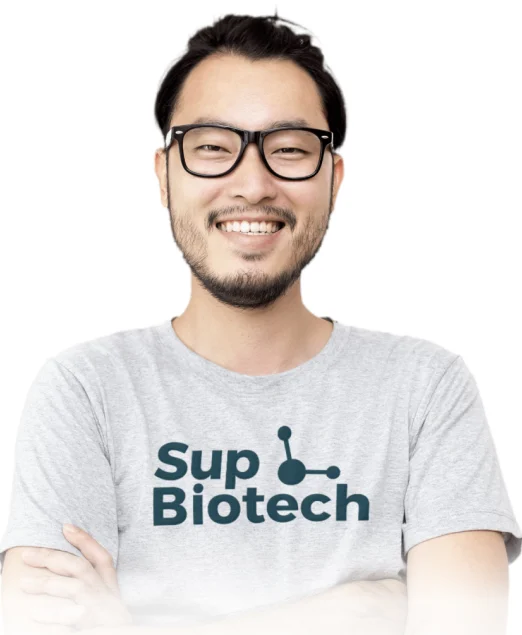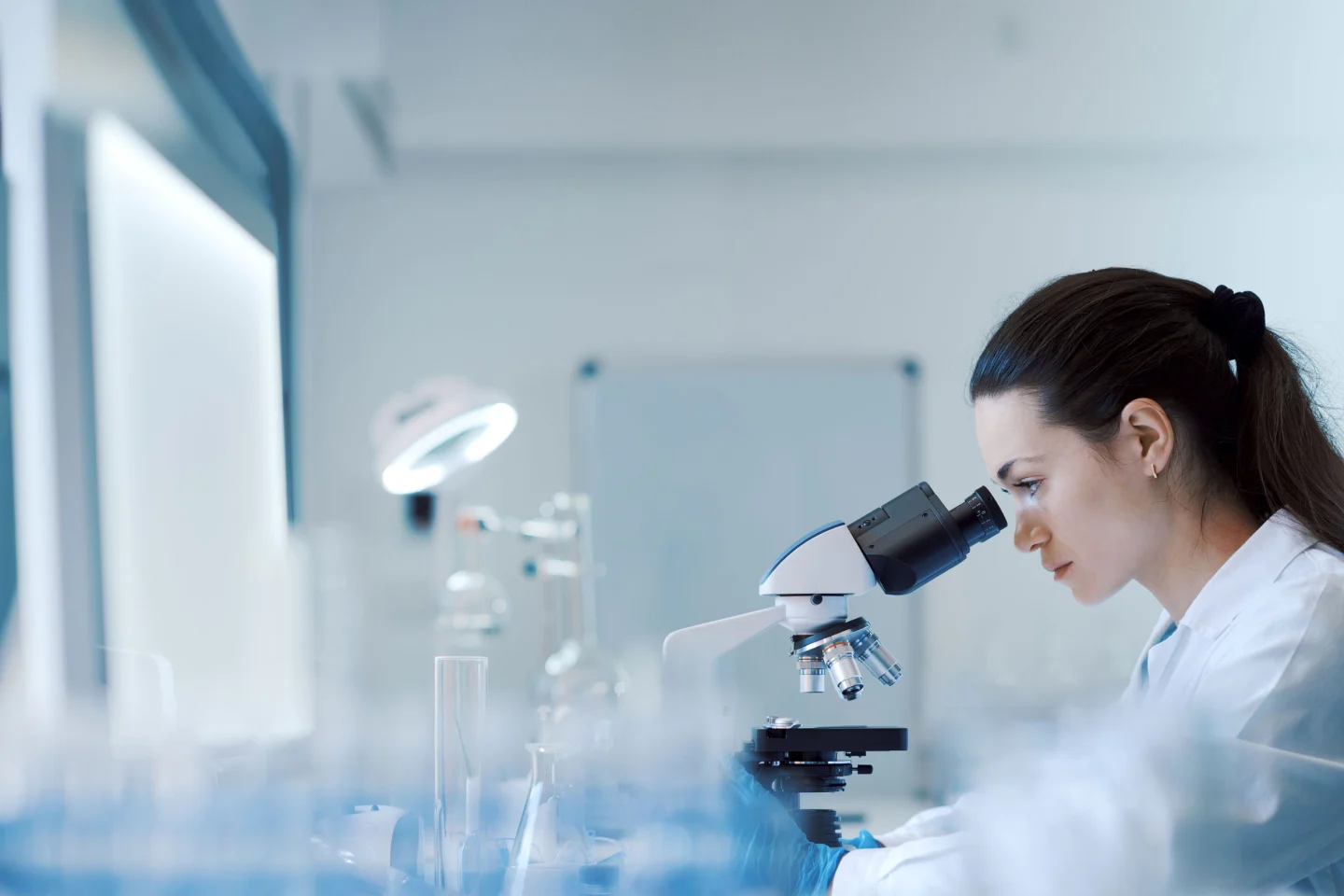
Pedagogical Laboratories
These laboratories operate two main missions: on one hand ensuring the students’ practical training, and on the other hand welcoming outside professionals providing them with the necessary equipment to carry out their experiments.
A technology plateform
Laboratories of life sciences
A number of practical exercises on various subjects are included in the students’ training: RNA purification, reverse transcription and PCR, cloning using an expression vector, detecting antigens with the sandwich ELISA test, hepatotoxicity, cell culture, optical microscopy, bacterial identification, western blot. These exercises develop the students’ technical skills that they can then apply in their internships, and acquire a solid scientific knowledge base. Particular attention is paid to the completion of a written report and the use of the laboratory notebook.
Available equipment in these laboratories are as follows: production chain for ultrapure water, thermal cyclers (one with gradient setting), horizontal electrophoresis systems for nucleic acids, imager for the analysis of agarose gel, refrigerated centrifuges, sonicator, micro plate readers, optical and fluorescence microscopes, an automated pipetting robot, bacteriological incubators (static and shaker), class ll laminar flow hoods, autoclaves, HPLC chain.
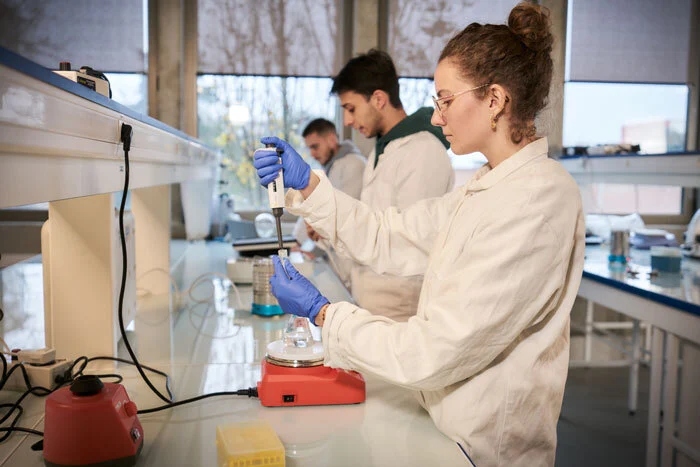
Bio-production laboratory
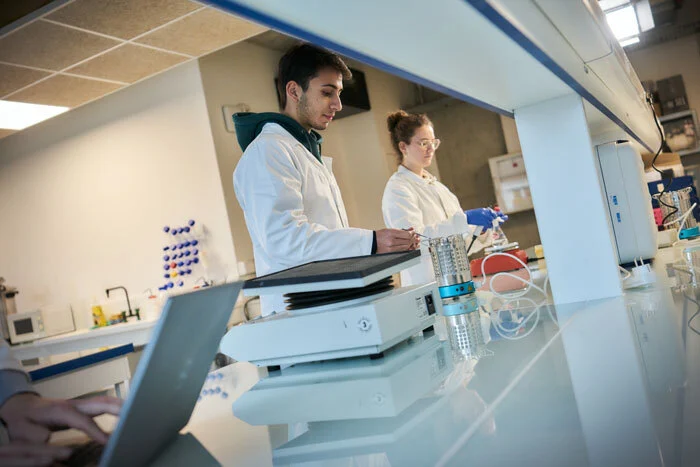
This laboratory works in synergy with the other SupBiotech laboratories, enabling students to put into practice all the steps involved in the production of a bio-molecule (from genetic cloning to analysis of the molecule).
From 3rd year onwards, students are trained in production methods (lactic fermentation in E. coli; lipid production in yeast, etc.), a field requiring specialized training. This laboratory is specifically designed to comply with the technical procedures used on an industrial scale. The room is equipped with entry/exit locks for personnel and equipment, and individually controlled 2L bioreactors.
Food Biotech Laboratory
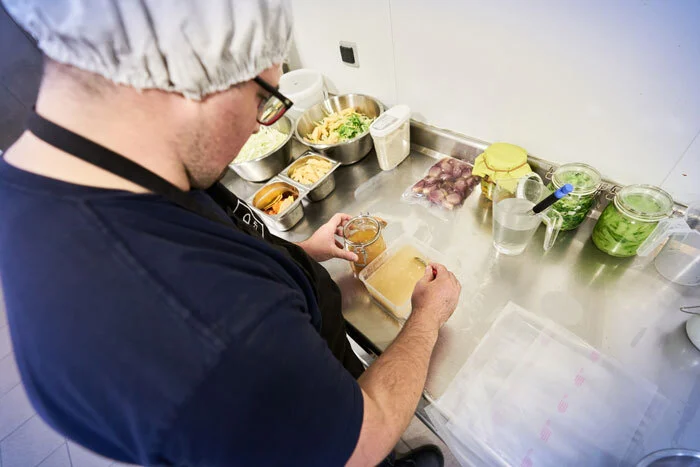
This laboratory is for practical exercises in agrifood and product development, as well as for common-themed Production projects, SBIP projects or projects completed by the Innov’eat association.
The laboratory of Food Biotechnology is an area measuring 70 m2 fully equipped with professional implements for culinary preparations. In this innovative laboratory, our students test, qualify and develop new food products. The kitchen can take up to 16 people, and is a place for learning, exchanging ideas and creativity.
Examples of Practical Exercises
Here are a few examples of Practical Exercises carried out in the SupBiotech laboratories:
- Enzymology: study of the kinetics of enzymatic reaction (Michaelis-Menten model).
- Biochemistry: separation of proteins by exclusion chromatography; extraction and purification of proteins.
- Molecular biology: plasmid DNA purification; cloning in a bacterial expression vector.
- Cell biology: cell culture and study of oxidative stress.
- Microbiology: bacterial transformation; Gram staining.
- General chemistry: analysis of water quality: spectrometric dosage of vitamine B; study and potential-pH diagram of iron-water system.
- Chemistry of complexes: study of copper ll complexes; modifications of oxydo-reduction properties; complexometric titration
- Bio-Production: alcoholic fermentation by beer yeast; production of lactic acid by E.coli.
